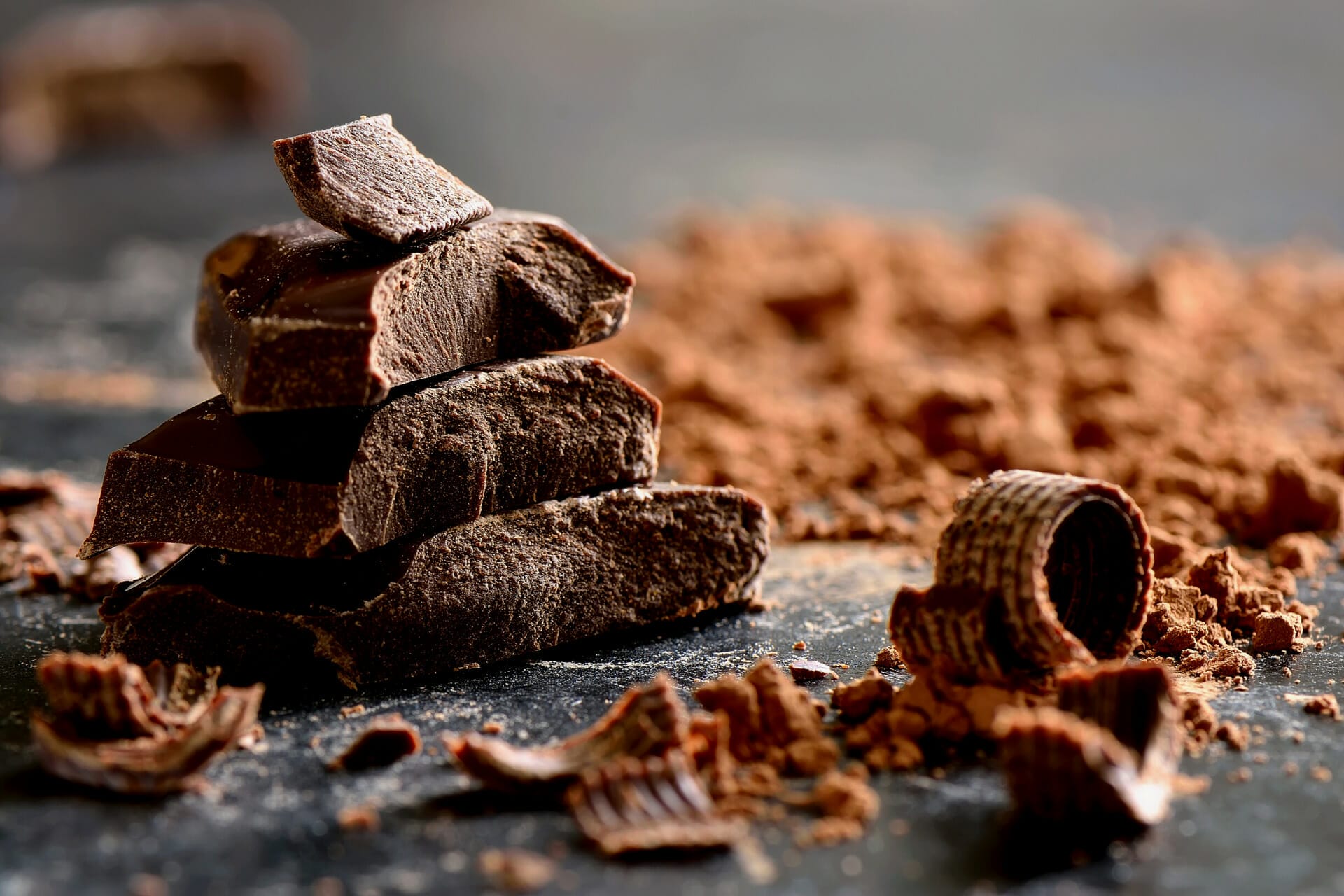Who can resist a good piece of chocolate? Given dark chocolate’s ability to improve brain function, reduce stress, and lower the risk of diabetes, this tasty treat may be a great addition to your CKD diet. However, it comes with a caveat. In this blog post, we will explore the health benefits of dark chocolate and ckd. Let's answer whether they are good for kidneys or not.

Health Benefits of Dark Chocolate
Dark chocolate is rich in antioxidants and loaded with flavonoids, vitamins, and minerals, making this bittersweet treat a superfood. Flavonoids are natural substances (phytonutrients) found in plant chemicals that act as antioxidants. This substance is considered an indispensable component in numerous nutraceutical, pharmaceutical, medicinal and cosmetic applications. Flavonoids have anti-oxidative, anti-inflammatory, anti-mutagenic, and anti-carcinogenic properties that may play a role in heart health, weight loss, and cancer prevention.

A 2011 study compared dark chocolate and cocoa powder to superfruits due to their concentrated source of phytonutrients that are higher than those found in blueberries and pomegranates. Separate studies reveal that diets high in flavonols (type of flavonoids) improve vascular endothelium function. These are the cells that line the insides of the blood vessels.
Flavanols may also offer protection against certain conditions such as Parkinson’s and Alzheimer’s, and digestive issues such as inflammatory bowel disease (IBS).
Additionally, the bioactive compounds in dark chocolate can protect the skin against sun damage, improve blood flow to the skin. It can also boost skin density and hydration.

Cocoa, where dark chocolate is derived, is a great source of fatty acids and a compound called theobromine. Theobromine is used as a blood vessel widener (vasodilator) and heart stimulant. People turn to theobromine as an alternative to caffeine to help boost their mood, get better sleep, lower blood pressure, and improve cardiac health. Is dark chocolate and CKD a good combination?
Is Dark Chocolate Good for CKD?
Numerous studies shared the neuroprotective, anti-inflammatory, and cardioprotective of chocolate consumption. 2012 research shows that daily consumption of dark chocolate lowered people’s blood pressure by an average of two to three points. The blood pressure is reduced by improving blood circulation and the functioning of the blood vessels.
High blood pressure and CKD are closely interlinked, as one condition influences the other. Hypertension contributes to the leading cause of kidney failure. Managing blood pressure may not slow the progression of CKD, but it can minimize the risk for cardiovascular issues and mortality among CKD patients.

People with CKD have reduced renal function, in which they can no longer filter blood properly. This condition can result in an accumulation of molecules such as uremic toxins in the blood. Healthy kidneys filter and excrete uremic toxins, but CKD patients may accumulate and exert these toxins on various systems, including the immune system. These patients have an unbalanced gut microbiota (dysbiosis) that may add to the production of uremic toxins. Eating dark chocolate may regulate the production of good bacteria in the gut and improve the integrity of the gut barrier. As a result, it can decrease inflammation and reduce uremic toxins.
Diabetes is the primary cause of CKD. Cocoa has been shown to increase insulin sensitivity even in people who did not have diabetes. In research published in Endocrine Abstract, adults who consumed 20 grams of either polyphenol-rich or polyphenol-poor dark chocolate showed better insulin sensitivity after a month. The lead researcher shared that dark chocolate consumption might delay or prevent the onset of prediabetes and diabetes. The next question is will dark chocolate and CKD further harm the kidneys?
Does Dark Chocolate Harm the Kidneys?

While dark chocolate may offer tons of health benefits, people with CKD should consider its potassium and phosphorus content. Cocoa is one of the foods with a high potassium content. An ounce of dark chocolate has approximately 158 milligrams of potassium. A 3.5-ounce dark chocolate bar (with 70-85% cacao) has more or less 722 milligrams of potassium.
Since the kidneys can no longer remove excess nutrients, too much potassium and phosphorus can be dangerous. The National Kidney Foundation (NKF) shared that you may experience nausea, irregular heartbeat, or heart attack if your potassium gets too high. NKF suggests that 1,500-2,700 mg of daily potassium intake can help maintain good health without straining the kidneys.
An ounce serving of dark chocolate has 87 mg of phosphorus, and a 3.5-oz dark chocolate bar can have 311 milligrams of phosphorus. Damaged kidneys cause phosphorus to build up in the blood, which results in bone and heart problems. The phosphorus pulls calcium from the bones that weakens the bones, causes joint pain, and calcifies the blood vessels.

One more thing to consider before consuming dark chocolate is the oxalate found in chocolate. Too much oxalate can prevent your body from absorbing essential nutrients in the digestive tract. More so, high levels of oxalate increase the chance that it will bind to calcium and form kidney stones. Since cocoa is a rich source of oxalate, the more cocoa in a bar of chocolate means the higher amount of oxalate. Dark chocolate with more than 70% cocoa contains 39 milligrams of oxalate per ounce. This amount of oxalate can be high if you are asked to limit your oxalate intake. When talking about dark chocolate and CKD, Potassium, Phosphorus, and Oxalate should always be considered.
The Bottomline
Dark chocolate and CKD patients may offer tons of benefits. Various studies revealed the cardioprotective, neuroprotective, and anti-inflammatory benefits of regular chocolate consumption. The phytonutrients called flavonoids found in cocoa are an indispensable part of different pharmaceutical and medicinal applications.
Flavonoids may play a role in preventing cancer, managing weight, and improving heart health. Despite these benefits, it is best to always check in with your renal dietitian before munching on a tasty bar of dark chocolate. It is because dark chocolates (60-85%) contain high amounts of phosphorus, potassium, and oxalate that could strain your kidneys, if consumed beyond the allowable limit set by your dietitian.
https://www.healthline.com/health/what-are-flavonoids-everything-you-need-to-know
Dark chocolate rich in polyphenols improves insulin sensitivity in the adult non-diabetic population -
http://www.endocrine-abstracts.org/ea/0034/ea0034p206.htm
Why Is Dark Chocolate Good for You? Thank Your Microbes -
https://www.scientificamerican.com/article/why-is-dark-chocolate-good-for-you-thank-your-microbes/
Kidney-Friendly Candy: Potassium In Chocolate And More! -
https://www.plantpoweredkidneys.com/potassium-in-chocolate/
Flavonoids: an overview -
https://www.ncbi.nlm.nih.gov/pmc/articles/PMC5465813/
Is dark chocolate good for you? -
https://www.bbcgoodfood.com/howto/guide/dark-chocolate-good-you

